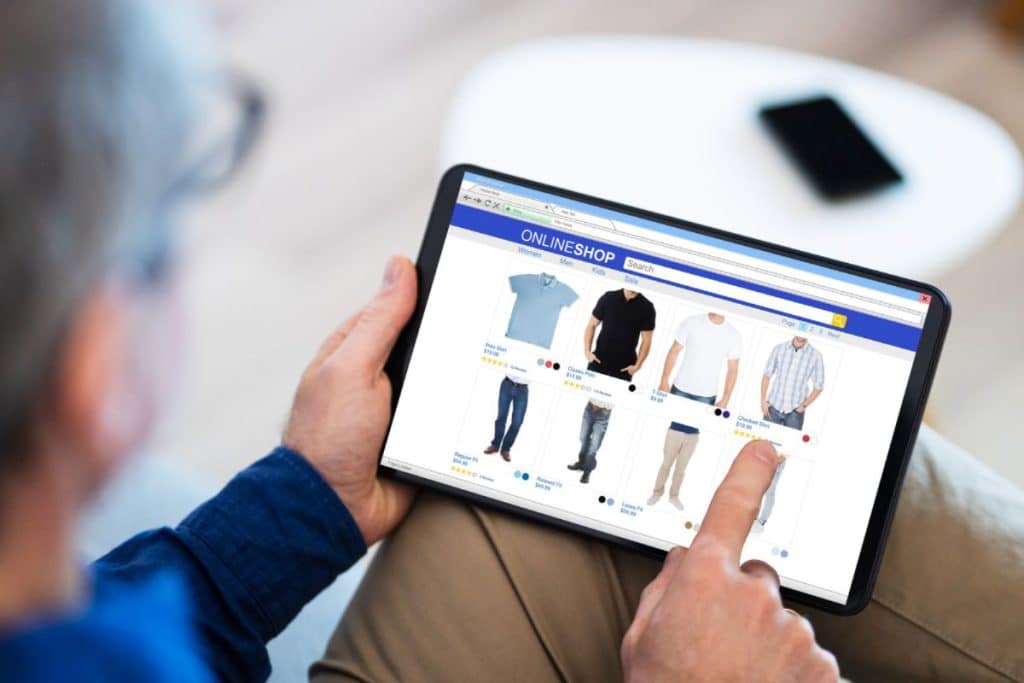As online business is becoming more popular and brick-and-mortar business is becoming less relevant, ERP commerce functionality is critical. By integrating your e-commerce platform with an ERP solution, you can:
- Increase productivity
- Retain customers
- Boost revenue
In this article, we’re going to explore some of the benefits of ERP integration into your e-commerce platform and the standard features you should look for, which can help you choose the ERP Solution that works for you.
Benefits of ERP & E-Commerce Integration
There is a wide variety of benefits that an e-commerce business can reap by successfully implementing an ERP system. Since these businesses typically conduct operations quickly and at a high volume, a dedicated solution can provide you with lots of benefits. Below are some of the benefits you can enjoy by integrating your online e-commerce platform with an ERP solution.
Sales Consolidation
One of the primary benefits of integrating an ERP solution for an e-commerce business is centralized sales from various areas. One of the critical aspects to consider when looking at solutions is omnichannel functionality—especially important if you conduct sales in multiple locations (online, catalogs, brick-and-mortar stores, etc.).
After all, it can be hard to keep the information organized when you have several disconnected platforms like this. An ERP can consolidate all the information, making it easier to develop insights. An automated system is much more accurate when including all relevant data points.
For example, if demand from your physical locations isn’t considered when forecasting material needs, you’ll end up with less supply and more demand—resulting in a loss of potential revenue.
Increased Productivity
An ERP solution can increase productivity by connecting workflows and automating information exchange. Some ERP solutions can automate functions such as sending out shipping notifications and reconciling banking transactions. When productivity increases, you can do more in the same amount of time, which increases output.
Additionally, with automation capability, workflows can be optimized. This results in less time wasted correcting errors and spot-checking documents.
Revenue Generation
There is no business out there that is not interested in finding new ways to create revenue. There are various ways that an ERP solution is used to increase income, from actual cash profits to implicit revenue related to productivity.
As mentioned, an ERP solution can automate some tasks. Meaning that there’s no employee needed for that particular task, and they can focus their attention on something else.
One study indicated that the average benefit that a business receives for every $1 they spend on an ERP solution is $7.23, which means that the successful integration of an ERP solution with your e-commerce platform can bring enough revenue to outweigh the initial cost of implementation.
Improved Customer Relations
Most of the ERP solutions on the market have built-in CRM (customer relationship management) functionality or are available through add-on modules. When an ERP solution includes CRM functionality, a business will have a central database of its customers’ information. With this, you can tailor your sales leads based on demographics, past sales, and more.
One study revealed that, in general, Americans spend 36% of their shopping budget online—and that percentage is expected to grow soon. This means there’s a huge sales potential that you could miss out on without an ERP solution.
Some ERP solutions automate the tracking of shipments and send out a notification once the package is delivered. When you streamline this process, your customers will have a positive impression of your company, leading to customer retention.
Process Visibility/Management
When reviewing the various ERP e-commerce solutions, it’s essential to consider process and project visualization. Often, you will find customizable dashboards that include information such as labor allocation, finances, project status, and more. When these insights are easier to see, it’s easier to determine where any issues are coming from and make decisions to help expedite operations.
Features to Look for in an ERP Solution for E-Commerce
As you look around for the best ERP solution for your e-commerce business, you’ll find that there are lots of features offered by ERP vendors. Some of these features are more important than others when it comes to e-commerce. Below are some features you should look for when finding an ERP solution for your e-commerce business.
CRM
As a business owner, you know that customer relationship management is critical—especially for e-commerce companies. After all, it can make or break your company. A CRM solution can assist you with cultivating new leads and keeping your current customers coming back.
Retaining your current customer base is very important because, according to research, it costs five times more to recruit new customers than keeping your current ones. Some ways to retain those customers are an online help desk, shipping notifications, and relevant advertisements.
Finance
Financial data is critical for running a business. After all, if you are not tracking your finances, how will you know if you make or lose money? One of the core components of a quality ERP solution is financial management and accounting tools. This way, you can develop forecasting models to help you plan for re-orders and delivery lead times. Additionally, this can help you find vendors to work with and reach out to customers who still owe a balance.
Inventory Management
When it comes to integrating an ERP solution with your e-commerce platform, inventory management capabilities are critical. Two things separate the needs of an e-commerce platform versus a brick-and-mortar location: products available online and sales volume. If you don’t have an ERP in place, it’s easy to make mistakes with the inventory.
Shipping/Distribution
Many e-commerce businesses utilize dropshipping, allowing the company to sell a product online and then order it from a third-party vendor who ships it to the customer. E-commerce companies increase their product variety without increasing their inventory holdings.
Which Platforms are Compatible with ERP?
There are lots of platforms that e-commerce businesses use. Here are some of the most common options and, therefore, usually the e-commerce/ERP integration targets:
Looking to the Future
Does this mean that integration of ERP with e-commerce will be vital as we move forward? Yes, absolutely.
According to one study, the total market share of online retail sales compared to brick-and-mortar sales increases each year. Meaning more people are going online to make their purchases.
In fact, according to the U.S. Department of Commerce Statistics, total retail sales were $1.38 trillion in Q4 2019 and $1.47 trillion in Q4 2020—an increase of 6.9%.
E-commerce sales were $156.39 billion in Q4 2019 and $206.66 billion in Q4 2020—an increase of 32.1%.
Therefore, as a percentage of retail sales, e-commerce went from 11.3% in Q4 2019 to 14% in Q4 2020.
Of course, some require more extensive decision-making and prefer to shop in person. However, consumers are becoming more comfortable with making these larger purchases online.
How to Choose the Right One
Finding the best solution starts with considering what your company needs, what you’re able/willing to spend on a solution and your industry. In addition, reach out to other customers who have used the ERP that you are considering to obtain reliable feedback. Goldfinch is one of the top ERP solutions. It integrates well with a variety of platforms and also functions in a variety of industries. Contact us today to find out how we can help you.



